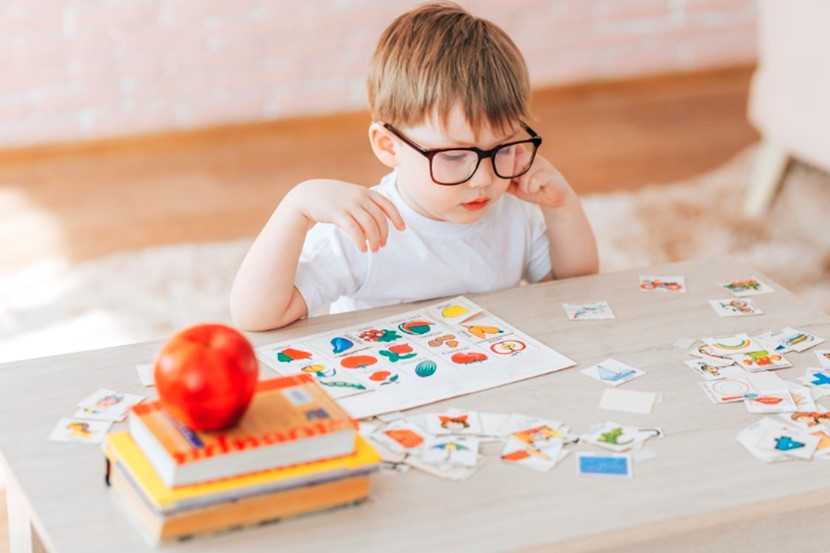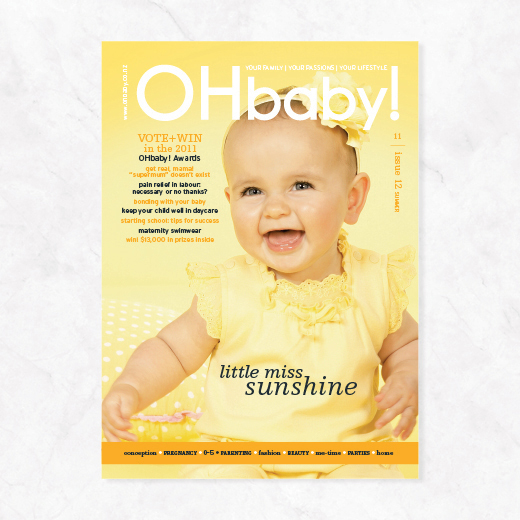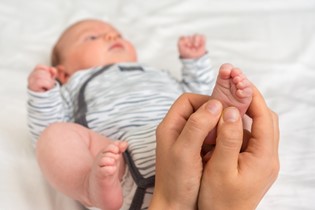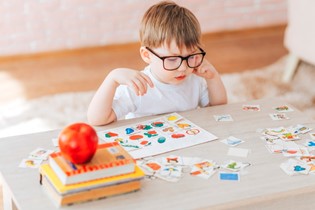Do you have a gifted child?

How can you tell if your little one is "gifted", talented, or average? Do we even need to label them? Dr Melanie Woodfield explains IQ testing and the consequences of its results.
When we think of someone being "gifted", we tend to think of a bright spark who shows a real skill in a particular area. Those fortunate few are endowed with a special ability, especially intellectual ability - think of the Albert Einsteins or Stephen Hawkings of the world. Most would agree that giftedness is rare and unique. Interestingly, in recent years, we've seen more and more centres and programmes for "gifted" children springing up. Is this a long-overdue service for children whose needs have been neglected? Have we really become a nation of brainiacs? Or have we simply gone too far?
Most parents have, at some stage, wondered if their child was gifted. Our children are so special, and seem so intelligent to us - how could they not seem that way to others? Many parents find it difficult not to comment on their child's brilliance, sparking a sense of competition between parents. This competition is often subtle ("Good for you, Sammy! You've learned to say your alphabet. My Sebastian's been saying his alphabet in three languages since he was 18 months..."), or can be downright in-your-face! Coffee groups are notorious for acting as petri dishes for competitive nature to breed, especially when it comes to our first child.
So is there an independent way of objectively picking out those children who truly do have an exceptional ability? Absolutely! Is it somewhat difficult and somewhat expensive? Absolutely! Is it worth it? Absolutely up to you! Read on to decide.
Giftedness and intelligence are thoroughly interwoven. Yes, it's possible to be a gifted musician and a slow academic student, but most of the time, we consider giftedness to refer to a global high intelligence. For simplicity, this article will focus on the idea of giftedness being synonymous with high intelligence. Intellectual ability is also known as cognitive ("thinking") ability. To figure out how bright someone is, we measure their intelligence. With adults, there is a selection of formal tests available, which can only be administered and interpreted by trained professionals - usually psychologists. Whichever test is chosen, it involves formal face-to-face testing in a suitable setting, and the test takes at least a few hours to complete. The tests involve both practical tasks and verbal tasks. They test all sorts of aspects of intelligence, such as verbal comprehension and expression, abstract thinking, and general knowledge.
Once the formal test has been administered and interpreted, several pieces of information are obtained, including a "full scale" IQ score, which is usually a compilation of the scores for both verbal tasks and non-verbal tasks. An IQ of 100 is considered average, and the great majority of people have an IQ somewhere between 85 and 115.
So... Sorry to burst your bubble, but that online intelligence test you did that gave you an IQ of 150 is unlikely to cut the mustard. If you're curious about your own IQ level, you might be in a bit of a pickle - most psychologists would hesitate to test someone who was "just wondering" how bright they are. Testing is usually only carried out for specific reasons (for example, before and after brain surgery, or after a head injury, or if a child is having difficulties at school). This applies to children too. You might encounter difficulty convincing a psychologist to test your child for the sake of it.
When testing children, slightly different tests are used. There are both preschool and children's versions of most of the adult tests available, and obviously they've been specifically adapted for those groups. There are also specialised infant tests of development available. The younger the child, the more that the tests rely on other information, such as the child's motor (physical) development. It's rather pointless trying to assess verbal expression in a six-month-old baby.
Stepping away from a formal assessment of giftedness for a moment, educators and parents have noted that how the gifted child learns can be very different to the average child. Janice Szabos summarised this in a handy table in Challenge Magazine (Issue 34, 1989). The following table is not very scientific, but gives a "flavour" of how a gifted child might be different.
| A Bright Child: | A Gifted Learner: |
| Knows the answers Is interested Is attentive Has good ideas Works hard Answers the questions Top group Listens with interest Learns with ease 6-8 repetitions for mastery Understands ideas Enjoys peers Grasps the meaning Completes assignments Is receptive Copies accurately Enjoys school Absorbs information Technician Good memoriser Enjoys sequential presentation Is alert Is pleased with own learning |
Asks the questions Is highly curious Is mentally and physically involved Has wild, silly ideas Plays around, yet tests well Discusses in detail, elaborates Beyond the group Shows strong feeling and opinions Already knows 1-2 repetitions for mastery Constructs abstractions Prefers adults Draws inferences Initiates projects Is intense Creates a new design Enjoys learning Manipulates information Inventor Good guesser Thrives on complexity Is keenly observant Is highly self-critical |
Here are a couple more things to note about intelligence. First, it's very difficult to define. Theorists have debated the best definitions of intelligence for hundreds of years. In a nutshell, most would agree that intelligence is an umbrella term that describes many different capacities of the mind. These include the ability to comprehend information, acquire knowledge and apply it to life.
Just to complicate things, it is possible to be very intelligent, but not do well at school. It is also possible to be very intelligent, but not know how to read or write. These situations could be explained, for example, if a child was very skilled at receiving verbal information from the teacher, but had difficulty processing and/or manipulating and storing the information.
Another explanation could be the reverse - that the child was skilled at processing and retaining information, but had a profound difficulty comprehending verbal or written information. Formal psychological testing can be hugely helpful in these situations - the child, their family, and their educators can then be taught skills to compensate for the areas in which they struggle.
There are a number of other situations in which formal assessment and recognition of giftedness from an early age can be hugely useful. For example:
✔ Children who would benefit from extra challenge or extension activities can be identified early and provided with opportunities to further develop their existing ability.
✔ Kids who might be at risk of frustration and/or boredom in traditional education settings can be spotted early and supported.
✔ Parents of gifted children can receive support in how best to meet the social and emotional needs of their children, in addition to their intellectual needs.
✔ Gifted children and their parents can meet together to provide each other with social support and understanding of the pleasures and difficulties of parenting (or being!) a gifted child.
There are also a few disadvantages of recognising giftedness at an early age.
There is always a possibility that programmes for gifted children take advantage of enthusiastic parents. These programmes cost parents money - sometimes quite a lot of money. Parents may feel trapped - they're reluctant to commit to a programme, but feel they would be neglecting the best interests of their child if they didn't.
Parents also need to be wary that expectations of their child are developmentally appropriate - not too high! Especially in preschool, kids need to be kids. There is a real risk that other important aspects of development - such as social skills and the learning that is gained from free play - can be neglected when children are pushed too far, too fast. The private Latin lessons and visits to NASA can wait, can't they?
There is also a risk of "roll-the-eyes" syndrome from other parents, and kindy and school teachers. Depending on their own perspectives on the validity of the concept of giftedness in toddlers, other parents and teachers may not be particularly understanding of your child's "exceptional needs".
Sorry to disappoint, but I'm not going to draw any hard-and-fast conclusions here. It's up to you to decide your own feelings and beliefs with regard to giftedness in toddlers. Are we over-diagnosing giftedness in the same way that we're being accused of over-diagnosing ADHD? Or should we be recognising more children who are gifted and supporting them to excel? There's no easy answer.
So where to from here? Programmes for gifted preschoolers and children operate throughout the country. The New Zealand Association for Gifted Children (www.giftedchildren.org.nz) is a good place to start your search. Most of these programmes are user-pays, and cost in the region of $200-$300 per term for one morning per week.
Many programmes require a formal assessment of your child's intelligence before considering your child for the programme. This assessment is usually carried out by a Clinical or Educational Psychologist with an interest in the area of giftedness, and is likely to cost several hundred dollars for testing and a report. Increasing numbers of mainstream primary and secondary schools are developing interventions and support for their "gifted and talented" students.
Dr Melanie Woodfield is a child and adolescent clinical psychologist in Auckland. She was the victim of "extension" programmes during her school years, and sheepishly admits that she quite enjoyed them, including the four years of compulsory Latin, which has subsequently only helped her read Dan Brown's The Da Vinci Code.
image: @anastassiya0610 via Twenty20

AS FEATURED IN ISSUE 12 OF OHbaby! MAGAZINE. CHECK OUT OTHER ARTICLES IN THIS ISSUE BELOW

















